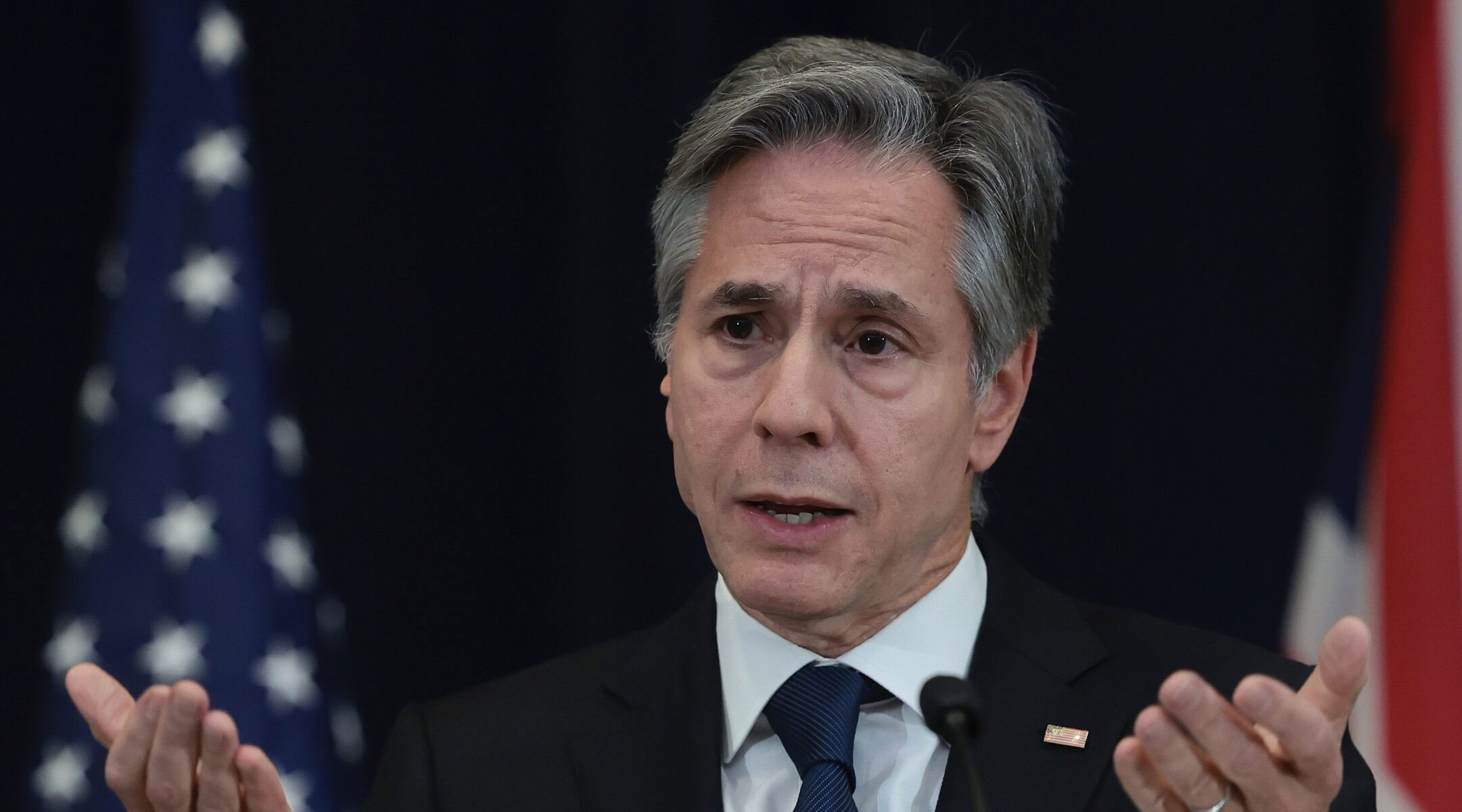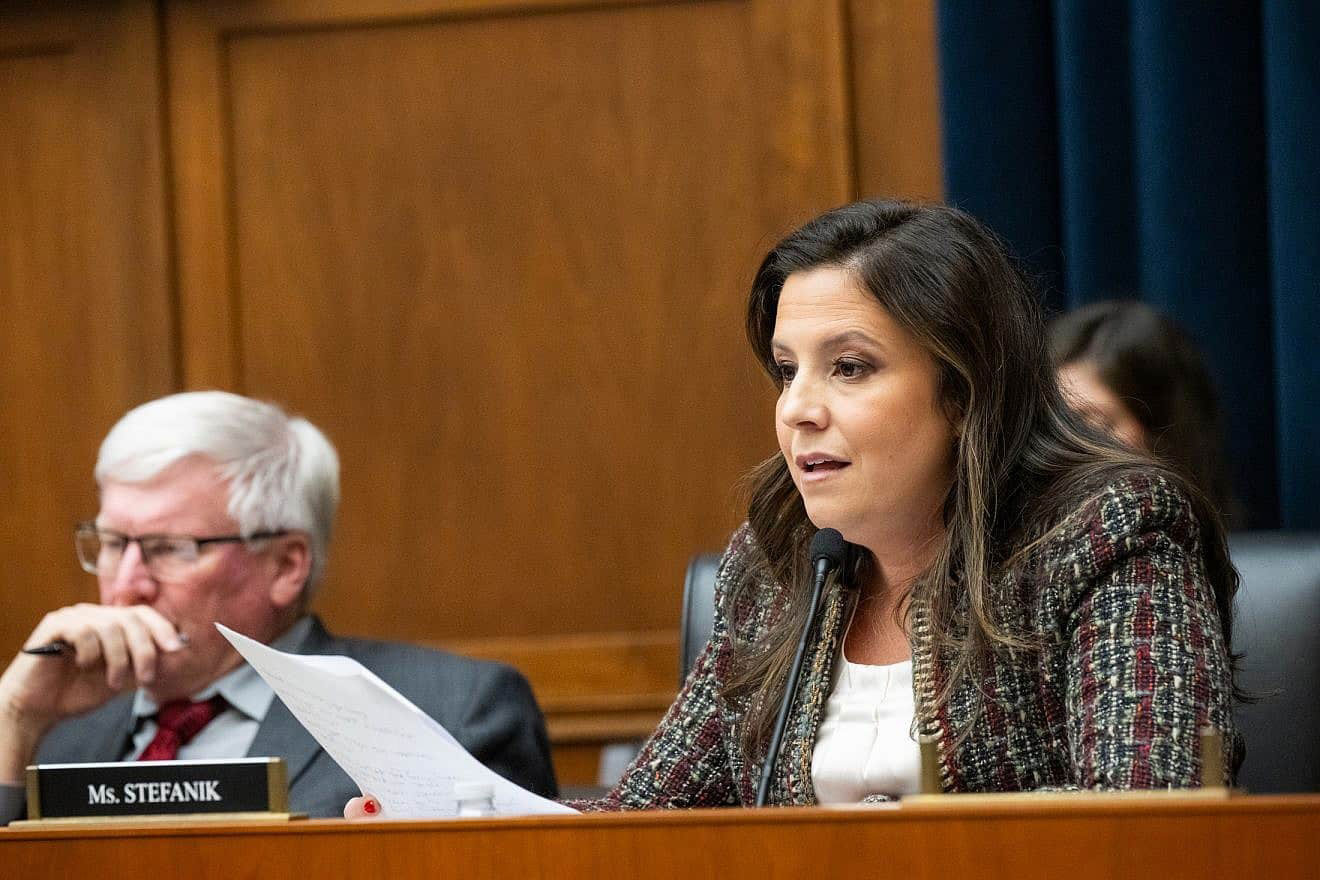Courtesy of JTA. Photo credit: Win McNamee/Getty Images
U.S. Secretary of State Antony Blinken answers questions during a press conference with British Foreign Secretary David Cameron at the State Department, Dec. 7, 2023
(JTA) — Outgoing Secretary of State Antony Blinken revealed that he spent nine hours urging Israeli officials, including Prime Minister Benjamin Netanyahu, to provide aid to Palestinians in Gaza in the days after Hamas’ Oct. 7, 2023, attack.
“In the course of that argument, when I was getting resistance to the proposition of humanitarian assistance getting in, I told the prime minister, I’m going to call the president and tell him not to come if you don’t allow this assistance to start flowing,” Blinken said in an interview with The New York Times published on Saturday. “And I called the president to make sure that he agreed with that, and he fully did.”
The wide-ranging interview covered the major world conflicts during Blinken’s tenure as President Joe Biden’s top diplomat, as well as Blinken’s reflections on what incoming President Donald Trump’s victory means for world affairs.
Interviewer Lulu Garcia-Navarro asked a dozen questions about the Gaza war, which she said had “become the defining crisis of this era” and where she said the impact of Israel’s operations appeared “fairly indiscriminate.” She pressed Blinken on whether he believed Israel had committed war crimes in Gaza and whether he felt that he had a partner in Netanyahu.
Blinken — whose office declined a Jewish Telegraphic Agency request for an exit interview — did not directly answer either question. But he emphasized that while he at times has been frustrated by the Israelis or viewed their actions as setbacks toward a ceasefire, he rejects the idea that what is happening in Gaza constitutes genocide and places the blame for the crisis there squarely on Hamas. He said: “Fundamentally, look, one of the things that I found a little astounding throughout is that for all of the understandable criticism of the way Israel has conducted itself in Gaza, you hear virtually nothing from anyone since Oct. 7 about Hamas. Why there hasn’t been a unanimous chorus around the world for Hamas to put down its weapons, to give up the hostages, to surrender — I don’t know what the answer is to that.
Israel, on various occasions has offered safe passage to Hamas’s leadership and fighters out of Gaza. Where is the world? Where is the world, saying, Yeah, do that! End this! Stop the suffering of people that you brought on! Now, again, that doesn’t absolve Israel of its actions in conducting the war. But I do have to question how it is that we haven’t seen a greater sustained condemnation and pressure on Hamas to stop what it started and to end the suffering of people that it initiated.”
Blinken added that perceptions of disputes between Israel and the United States also impeded ceasefire efforts. He said “whenever there has been public daylight between the United States and Israel and the perception that pressure was growing on Israel, we’ve seen it: Hamas has pulled back from agreeing to a cease-fire and the release of hostages.”
He also said he believes that both a hostage release and ceasefire deal in Gaza and an Israeli normalization agreement with Saudi Arabia were within reach — and that the peace that can result could be lasting.
“We’ve spent months working on a post-conflict plan with many countries in the region, Arab partners in particular,” Blinken said. “If we don’t have the opportunity to start to try to implement it through a hostage ceasefire agreement in the next couple of weeks, we will hand it off to the incoming Trump administration, and they can decide whether to move forward with it.”





